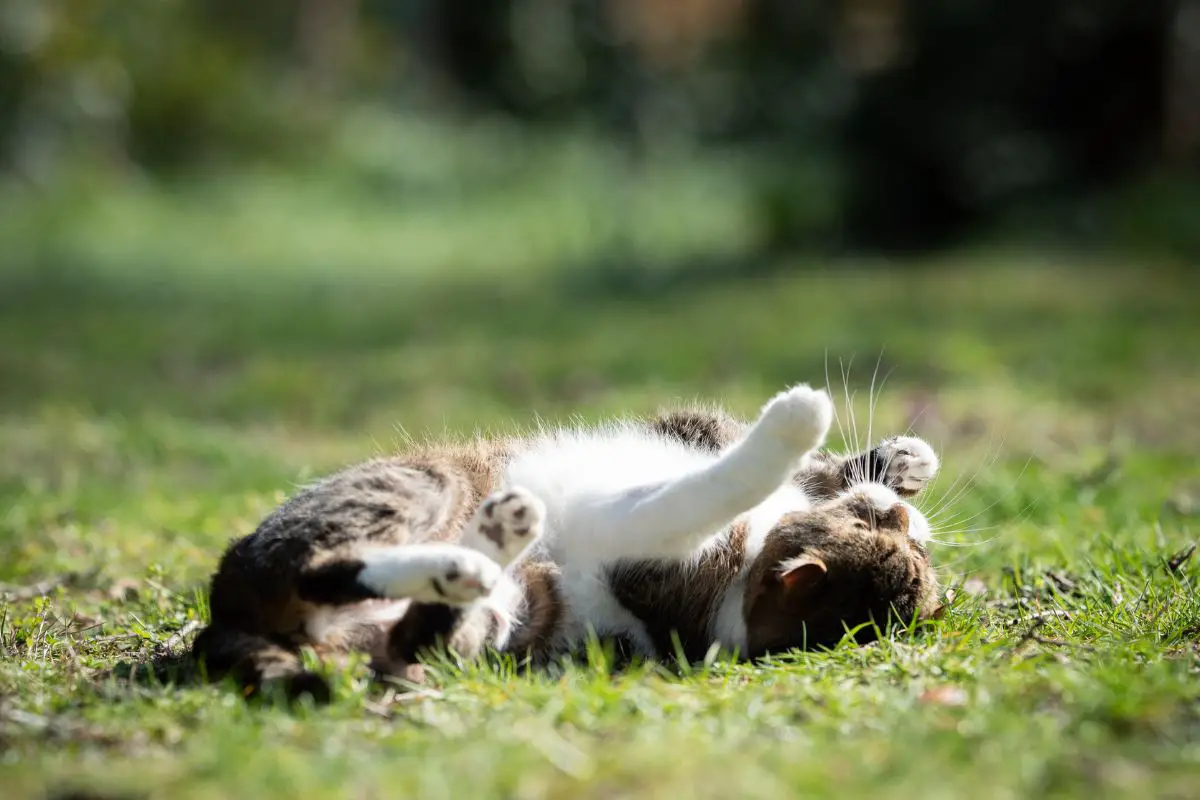One of the cutest things about cats is how they’ll suddenly flop over and show their bellies. Many cat owners wonder, “Why do cats flop over?” when they see their furry friend lying on its back with paws in the air. Is it a sign of relaxation, trust, or something else entirely?
This article will explore the reasons behind this behavior and what it means when your cat does this.
Why do cats flop over?
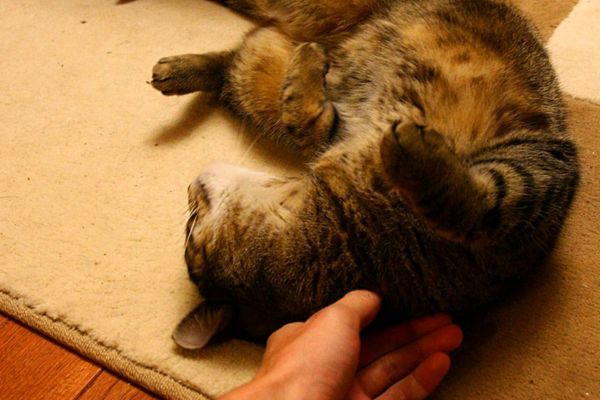
Cat flopping is a normal and natural behavior that’s frequently associated with relaxation, trust, and affection. While it may appear random or silly at times, cat owners must understand and appreciate their cat’s distinct behaviors and personalities.
Key Takeaways:
- Cats flop over for numerous reasons, but the most obvious is that they’re at ease in their environment.
- Flopping over can also be seen in cats that are in estrus or heat.
- Other signs of happiness in cats include purring, kneading, and bunting.
Reasons for cat flopping
One of the most entertaining aspects of cat behavior is the way they often flop over on their sides or backs. This movement, which is commonly referred to as “flopping,” can be seen in cats of all ages and breeds. The act of cats flopping over may look like a silly behavior, but there are actually several reasons why cats do it:
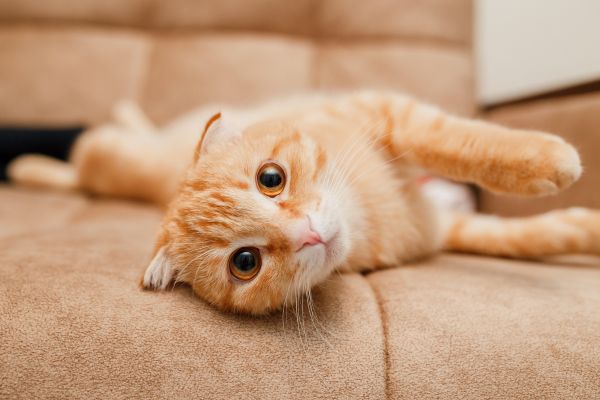
1. Flopping is a sign of relaxation and comfort in cats
When a cat feels safe and secure in their environment, it may flop over onto its side or back to lower its guard and fully relax. This behavior is frequently observed in felines when they’re lazing about in a sunny spot or when they’re snuggled up with their favorite human.
2. To show trust and affection
Flopping over onto their side or back is one of the many ways these felines express their love and trust. When your pet flops over and exposes its belly, it’s a sign that it feels comfortable and safe in its surroundings. Cats with a strong bond with their owner or any other animals living in the household typically display this behavior.
3. A way of seeking attention
It’s common for your furry friend to display this behavior in order to attract the attention of its owner when it’s in the mood to be petted or played with. This behavior is typically observed in kittens and young cats because they’re naturally more playful and active.
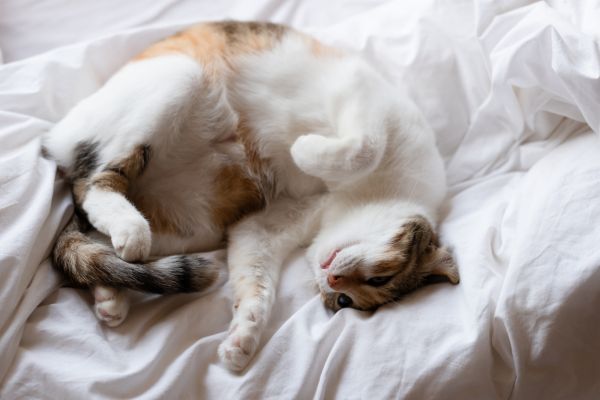
4. They may be in heat
When a female cat enters her estrus cycle, she may display her readiness to mate by flopping over on her back. This behavior is frequently accompanied by other signs of heat, such as meowing loudly, rolling around on the floor, and rubbing against objects or people.
5. Cooling down
Cats will often seek out cooler areas to rest in when the warm weather becomes too much for them to bear, and they’ll often roll around in the dirt and flop over to keep cool. The first layer of the ground may be warmer than it actually is because it’s been in the sun for so long, but felines can rub it away, revealing the second layer, which is much cooler.
Signs of relaxation in cats
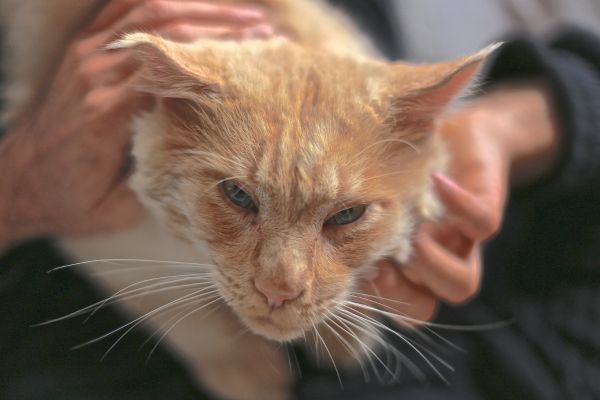
Although flopping over can be a sign that your cat is at ease and trusts you, it’s important to remember that this isn’t the only sign of affection that your fur friend may show you. Cats express their emotions in a variety of ways, and the following behaviors can help you determine their level of comfort and happiness:
Purring
Cats often purr when they’re relaxed and content. When a cat purrs, it indicates that it is content and comfortable in its environment.
Kneading
When cats knead with their paws, it’s typically an indication that they’re happy and experiencing great pleasure. You might also see your pet kneading its paws in an attempt to soothe and relax.
Bunting
Cats may exhibit this behavior by rubbing their heads or cheeks against various things, including other animals and people. When your pet does this, it may be requesting additional attention, such as being petted. Bunting is a form of communication cats use to show their owners that they love, trust, and adore them without conditions.
Is my cat uncomfortable in its surroundings?
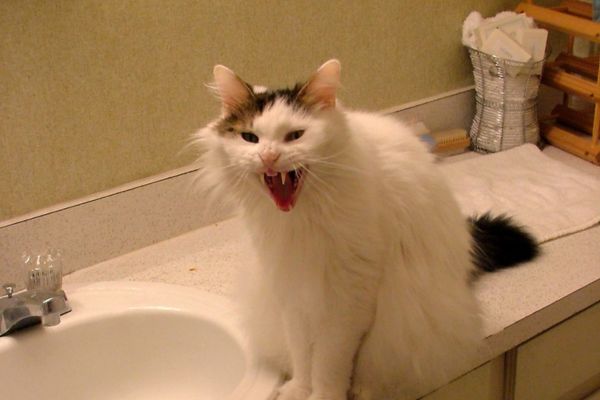
If you’re wondering whether your cat is comfortable or anxious in their surroundings, it’s also important to note that there are various signs of discomfort or fear in cats that can be observed. They might hide under furniture or in closets, growl, hiss, or bite when they feel unsafe.
When they’re anxious or stressed out, these animals may begin to groom themselves more frequently than usual. If you notice any of these signs in your pet, it’s important to provide them with an environment that’s safe and comfortable, and if necessary, seek assistance from a veterinarian.
Final Thoughts
Cats are fascinating creatures with a wide variety of individual traits, one of which is their tendency to flop over. Even though there isn’t a single answer for why your pet does this, most people agree it’s a sign of trust and relaxation. There’s no denying that flopping over is an instinctive behavior for many cats, whether they’re trying to get your attention, show their happiness, or cool down.

